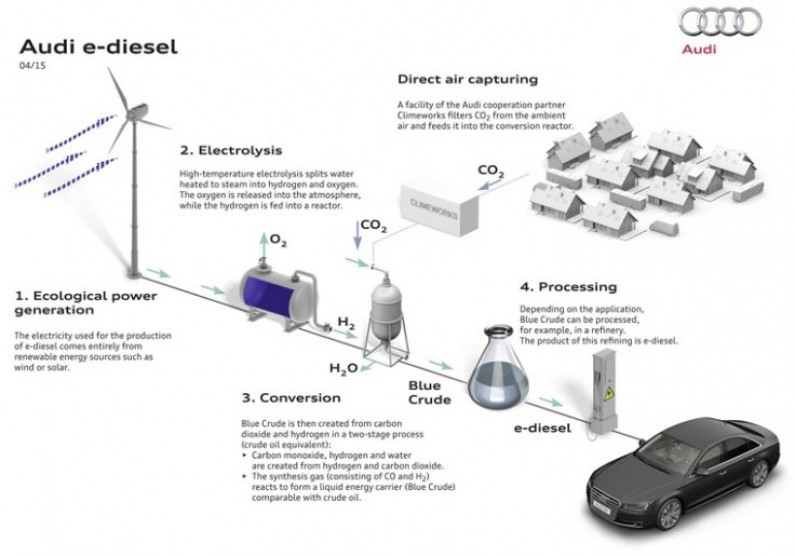
VIA International Business Times by Ewan Palmer
German car manufacturer Audi says it has created the “fuel of the future” made solely from water, carbon dioxide and renewable sources.
The synthetic “e-diesel” was made following a commissioning phase of just four months at a plant in Dresden, Germany.
Unlike regular diesel, the clear fuel does not contain any sulphur or fossil oil, while it has an overall energy efficiency of around 70%.
Germany’s federal minister of education and research, Dr Johanna Wanka, said she has already used the fuel in her Audi A8, while the company hopes the Dresden factory, operated by clean tech company Sunfire, will produce 160 litres of it every day in the coming months.
“This synthetic diesel, made using CO2, is a huge success for our sustainability research,” Wanka said. “If we can make widespread use of CO2 as a raw material, we will make a crucial contribution to climate protection and the efficient use of resources, and put the fundamentals of the ‘green economy’ in place.”
Creation of the fuel, which Audi and Sunfire are calling blue crude, first requires heating water to 800C (1,472F) to trigger a high temperature electrolysis to break down the steam to hydrogen and oxygen.
The hydrogen then reacts with the CO2 in synthesis reactors, again under pressure and at a high temperature. The reaction product is a liquid made from long‑chain hydrocarbon compounds, known as blue crude.
This synthetic fuel, which is free from sulphur and aromatic hydrocarbons, is suitable for mixing with fossil diesel or being used as a fuel in its own right.
Reiner Mangold, head of sustainable product development at Audi, said: “In developing Audi e-diesel we are promoting another fuel-based on CO2 that will allow long‑distance mobility with virtually no impact on the climate. Using CO2 as a raw material represents an opportunity not just for the automotive industry in Germany, but also to transfer the principle to other sectors and countries.”
